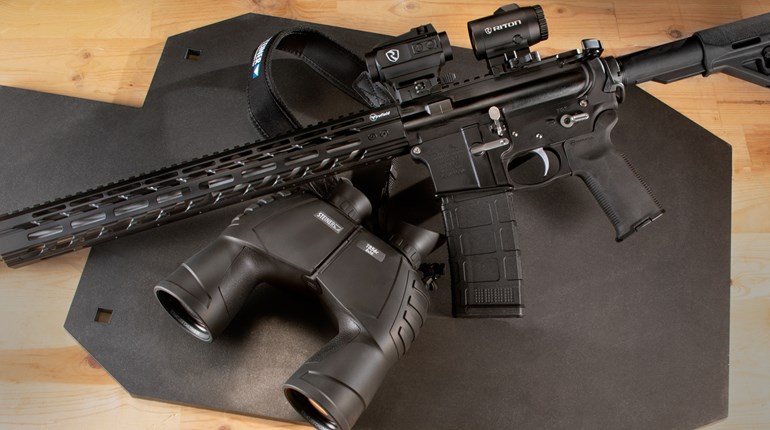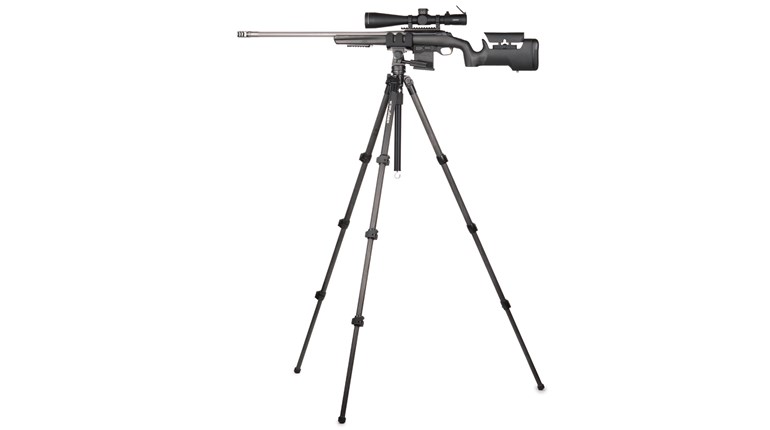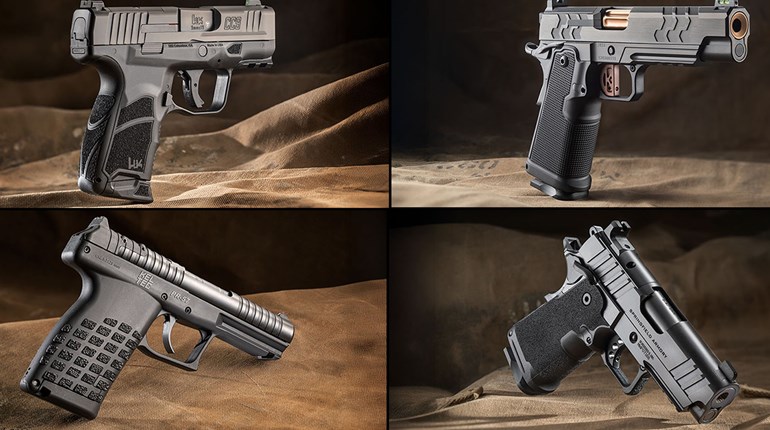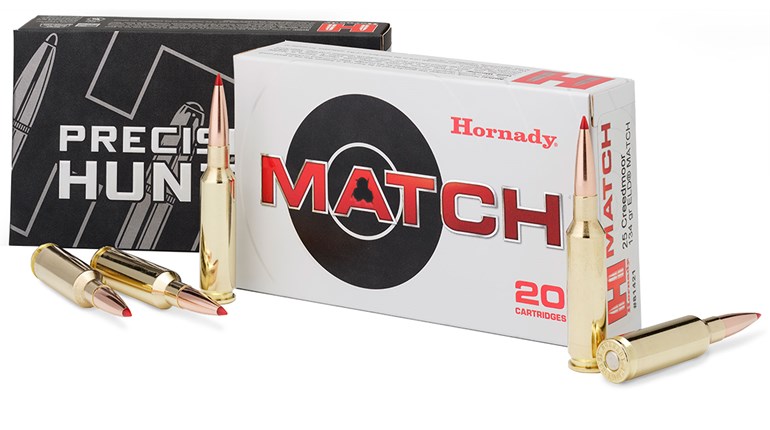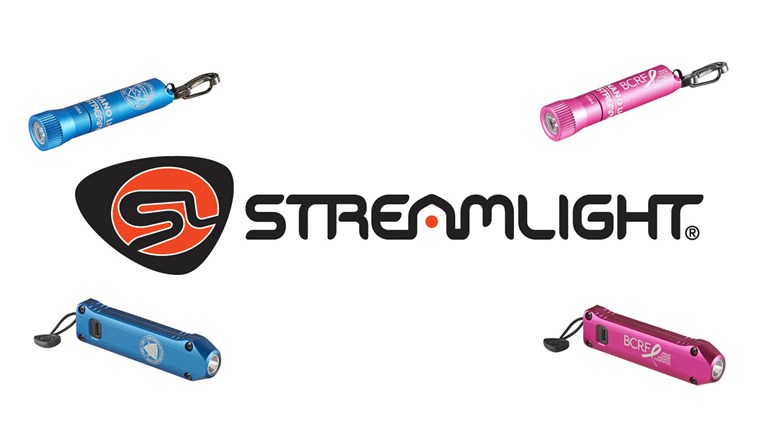
Gun design—which once ignored the left-handed—now includes southpaws from the get-go. New designs like the Tavor are available in left-hand models.
Anyone growing up during the 1980s likely knew at least one geek who occasionally wore a T-shirt with “Left Is Right” plastered on the front in ironed-on, velveteen letters. At my high school, that geek was me. The tongue-in-cheek phrase was a way of saying that we southpaws were OK with growing up in a righty’s world. But, in reality, our awkward battles with three-ring binders, spiral notebooks, scissors and erasable-ink pens served as daily scholastic obstacle courses. I found the situation outside of the classroom much the same when it came to long guns. Mine were all designed for right-handed shooters, so I adapted and never really considered there was any other way.
I was issued my first Army rifle—an M16A1—at the ripe young age of 17. The A1 did not have a brass deflector forged into the upper receiver like most of today’s ARs do. So, after being singled out for extra haranguing by our drill instructors, the few southpaws in my basic training company were issued plastic brass deflectors that snapped into our rifles’ carrying handles. At first, I thought it was pretty awesome that Uncle Sam would give lefties such consideration. Then, I used one for the first time and realized the joke was on us. You see, when hot, spent brass bounced off the plastic deflector, it dropped straight downward and into our support-arm fatigue sleeves. When they allowed us to shoot in T-shirts during the 100-degree South Georgia heat, those hot casings pooled around our elbows instead. Lesson learned: Trigger pull + instantaneous elbow scorching = poor marksmanship.

A few years later I was fortunate enough to call home a unit that installed ambidextrous safeties on our pistols and rifles wherever possible. Eventually, I found my way into the sniping ranks and was thrilled to fire a left-handed, bolt-action rifle for the first time. Unfortunately, no one made Picatinny rail-mounted brass deflectors in those days, so my semi-auto SR-25 flung a steady-diet of hot brass into my forehead with every shot. But I was still happy to have an ambi safety and I wore a hat most of the time anyway. Today we are in much better shape when it comes to left-friendly rifle options. Parts manufacturers are producing an ever-growing crop of aftermarket ambi charging handles, selectors, mag releases and bolt stops that do not require gunsmith installation. Big-name gunmakers are ratcheting up their left-hand rifle offerings, too, and most new semi-automatic designs are coming off the production line with ambi or fully convertible features.
The ambidextrous movement is mainly driven by two factors. First, since lefty children no longer get slapped with a ruler for using the “Devil’s hand,” the adult southpaw population has grown over the past few decades. Second—and far more significantly—competitors, law enforcement professionals, home defenders and plinkers are learning that ambi controls bring several benefits to the table.
A real-world defensive or tactical scenario may push you to shoot opposite side to help conceal or protect as much of your body as possible behind a barrier or around a corner. Consider, too, an injury to the strong-side arm or hand may also necessitate weak-hand shooting. Families or tactical teams with a mixture of left- and right-handed shooters can set up their rifles so anyone’s controls will be familiar to all, regardless of dominant hand. Fast-moving competitions often have weak-hand stages that force you to swap hands, usually under conditions that are less-than-ideal.
Some shooters find that ambi controls are more efficient, too. For example the common right-handed [left-side] bolt-release location found on modern-sporting rifles happens to be well-positioned for a lefty to quickly actuate with the firing hand. An aftermarket, ambi-bolt stop gives speed-conscious righties the same ability on the right side of their rifles. Same goes for the growing crop of ambi-charging handles: Whether a side-mount reconfigurable design of the SCAR- and Tavor-types or an AR-style rear charger, you can choose one side over the other for rapid bolt cycling.
Even shooters who prefer the AK-47-style of rifle can get in on this action. Krebs Custom offers an AK ambi safety that requires no modification. The additional lever protrudes from the back of the traditional safety, giving both right- and left-handed shooters easier access to the safety—without completely breaking the shooting grip. Since the paddle-style mag release is already ambidextrous and running a right-side charging handle with my [right] support hand is already burned into my muscle memory, I’m now much faster putting an AK into action. There were a few situations that dictated I carry an AK-47 while in the Army. If I had an ambidextrous safety selector back then, I would have felt much better about my odds of quickly getting my rifle into action in a pinch.
If you desire ambidextrous rifle controls, there is a decent chance you will be able to outfit your existing rifle or purchase a new rifle set up for left- and right-handed shooting. While I do not support the “Hug a Lefty” movement (not a hugger), I do recommend we all embrace the ambi in a purely mechanical sense. And if you happen to come across one of those ancient “Left Is Right” shirts while rummaging through old boxes, turn it into a gun rag before your children see it.












